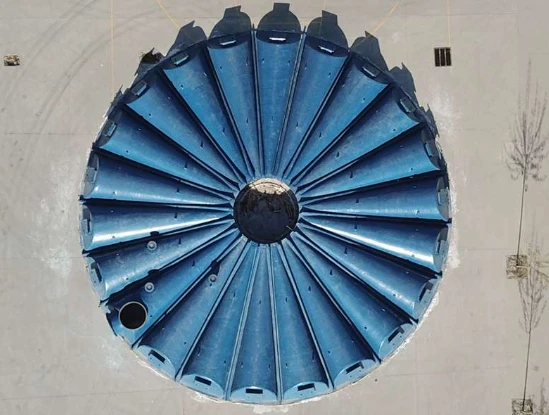
-
 Afrikaans
Afrikaans -
 Albanian
Albanian -
 Amharic
Amharic -
 Arabic
Arabic -
 Armenian
Armenian -
 Azerbaijani
Azerbaijani -
 Basque
Basque -
 Belarusian
Belarusian -
 Bengali
Bengali -
 Bosnian
Bosnian -
 Bulgarian
Bulgarian -
 Catalan
Catalan -
 Cebuano
Cebuano -
 China
China -
 China (Taiwan)
China (Taiwan) -
 Corsican
Corsican -
 Croatian
Croatian -
 Czech
Czech -
 Danish
Danish -
 Dutch
Dutch -
 English
English -
 Esperanto
Esperanto -
 Estonian
Estonian -
 Finnish
Finnish -
 French
French -
 Frisian
Frisian -
 Galician
Galician -
 Georgian
Georgian -
 German
German -
 Greek
Greek -
 Gujarati
Gujarati -
 Haitian Creole
Haitian Creole -
 hausa
hausa -
 hawaiian
hawaiian -
 Hebrew
Hebrew -
 Hindi
Hindi -
 Miao
Miao -
 Hungarian
Hungarian -
 Icelandic
Icelandic -
 igbo
igbo -
 Indonesian
Indonesian -
 irish
irish -
 Italian
Italian -
 Japanese
Japanese -
 Javanese
Javanese -
 Kannada
Kannada -
 kazakh
kazakh -
 Khmer
Khmer -
 Rwandese
Rwandese -
 Korean
Korean -
 Kurdish
Kurdish -
 Kyrgyz
Kyrgyz -
 Lao
Lao -
 Latin
Latin -
 Latvian
Latvian -
 Lithuanian
Lithuanian -
 Luxembourgish
Luxembourgish -
 Macedonian
Macedonian -
 Malgashi
Malgashi -
 Malay
Malay -
 Malayalam
Malayalam -
 Maltese
Maltese -
 Maori
Maori -
 Marathi
Marathi -
 Mongolian
Mongolian -
 Myanmar
Myanmar -
 Nepali
Nepali -
 Norwegian
Norwegian -
 Norwegian
Norwegian -
 Occitan
Occitan -
 Pashto
Pashto -
 Persian
Persian -
 Polish
Polish -
 Portuguese
Portuguese -
 Punjabi
Punjabi -
 Romanian
Romanian -
 Russian
Russian -
 Samoan
Samoan -
 Scottish Gaelic
Scottish Gaelic -
 Serbian
Serbian -
 Sesotho
Sesotho -
 Shona
Shona -
 Sindhi
Sindhi -
 Sinhala
Sinhala -
 Slovak
Slovak -
 Slovenian
Slovenian -
 Somali
Somali -
 Spanish
Spanish -
 Sundanese
Sundanese -
 Swahili
Swahili -
 Swedish
Swedish -
 Tagalog
Tagalog -
 Tajik
Tajik -
 Tamil
Tamil -
 Tatar
Tatar -
 Telugu
Telugu -
 Thai
Thai -
 Turkish
Turkish -
 Turkmen
Turkmen -
 Ukrainian
Ukrainian -
 Urdu
Urdu -
 Uighur
Uighur -
 Uzbek
Uzbek -
 Vietnamese
Vietnamese -
 Welsh
Welsh -
 Bantu
Bantu -
 Yiddish
Yiddish -
 Yoruba
Yoruba -
 Zulu
Zulu
Exploring the Benefits and Characteristics of Food-Grade Fiberglass Equipment for Safety and Efficiency
A Closer Look at Fiberglass Food Grade Equipment Features and Benefits
In the ever-evolving food industry, the materials used in food processing and handling are crucial for maintaining safety, quality, and efficiency. Among these materials, fiberglass food grade equipment has gained prominence due to its unique properties and benefits. This article delves into the features of fiberglass food grade equipment and why it is becoming a preferred choice in many food-related applications.
What is Fiberglass Food Grade Equipment?
Fiberglass food grade equipment is made from reinforced plastic, primarily composed of glass fibers and resin. This combination results in a strong yet lightweight material that is ideal for various applications in food processing, storage, and transportation. The food grade designation indicates that these materials meet strict safety standards set by regulatory bodies to ensure they do not leach harmful substances into food products.
Features of Fiberglass Food Grade Equipment
1. Durability One of the most significant advantages of fiberglass is its robust nature. It can withstand extreme temperatures, chemicals, and mechanical stress without compromising its integrity. This durability makes it suitable for use in various demanding environments, from food manufacturing plants to kitchens.
2. Corrosion Resistance Unlike metal equipment, fiberglass does not rust or corrode when exposed to moisture or harsh cleaning chemicals. This property ensures a longer lifespan and reduced maintenance costs, contributing to more efficient operations.
3. Non-porous Surface Fiberglass has a smooth and non-porous surface, which minimizes the risk of bacterial growth and contamination. This feature is particularly important in the food industry where hygiene is paramount. The easy-to-clean surface allows for thorough sanitation, adhering to health and safety regulations.
4. Lightweight Fiberglass equipment is significantly lighter than metal alternatives, which not only makes it easier to handle and transport but also reduces the strain on storage facilities. This lightweight nature allows for greater flexibility in design and layout within food processing environments.
fiberglass food grade equipment a closer look at its features and ...

5. Versatility Fiberglass is adaptable to a range of products, including tanks, conveyor systems, and trays. Its ability to be molded into various shapes allows manufacturers to customize equipment to meet specific needs, making it a versatile choice across different food sectors.
6. Insulation Properties Fiberglass offers excellent insulation against temperature changes. This feature is particularly important in food preservation, where maintaining consistent temperatures is crucial to prevent spoilage and ensure product quality.
Benefits of Using Fiberglass Food Grade Equipment
1. Enhanced Food Safety The non-porous, easy-to-clean surface and resistance to contamination inherently improve food safety. This quality is essential for any facility aiming to achieve high hygiene standards.
2. Cost-Effective Although the initial investment may be higher than other materials, the durability and low maintenance requirements of fiberglass often lead to significant cost savings over time. The reduced need for repairs and replacements can greatly benefit businesses.
3. Regulatory Compliance Fiberglass food grade equipment typically meets the rigorous standards set by health and safety authorities. This compliance not only protects consumers but also enhances a company's reputation within the industry.
4. Environmental Impact The long lifespan of fiberglass equipment contributes to lower waste generation. Additionally, many manufacturers are now producing fiberglass using environmentally friendly processes, further reducing its ecological footprint.
Conclusion
Fiberglass food grade equipment stands out as a reliable and effective choice for the food processing industry. Its unique combination of durability, safety features, and versatility makes it an ideal material for a range of applications. As food safety regulations continue to evolve and consumer demands for high-quality products increase, the adoption of fiberglass equipment is likely to grow, paving the way for improved operational standards and enhanced food safety practices across the industry.









